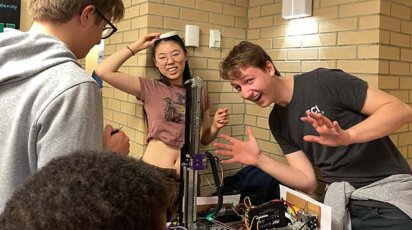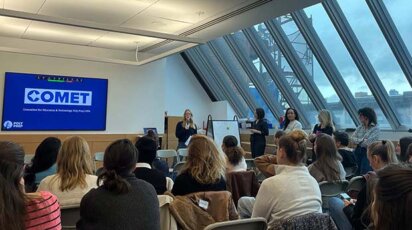News
Max Stossel on the Impact of Social Media
Did you ever think of social media as being like a casino slot machine?
Guest speaker Max Stossel from Social Awakening made that analogy in his presentation to Upper School students at Poly on October 23. Stossel, who once worked for a social media company, said it was the work of “growth teams” “to get you to spend more time” on social media like slot machines in a casino. For developers of social media apps, he said, “the more of your time [they] can take, the more money [they] make.”
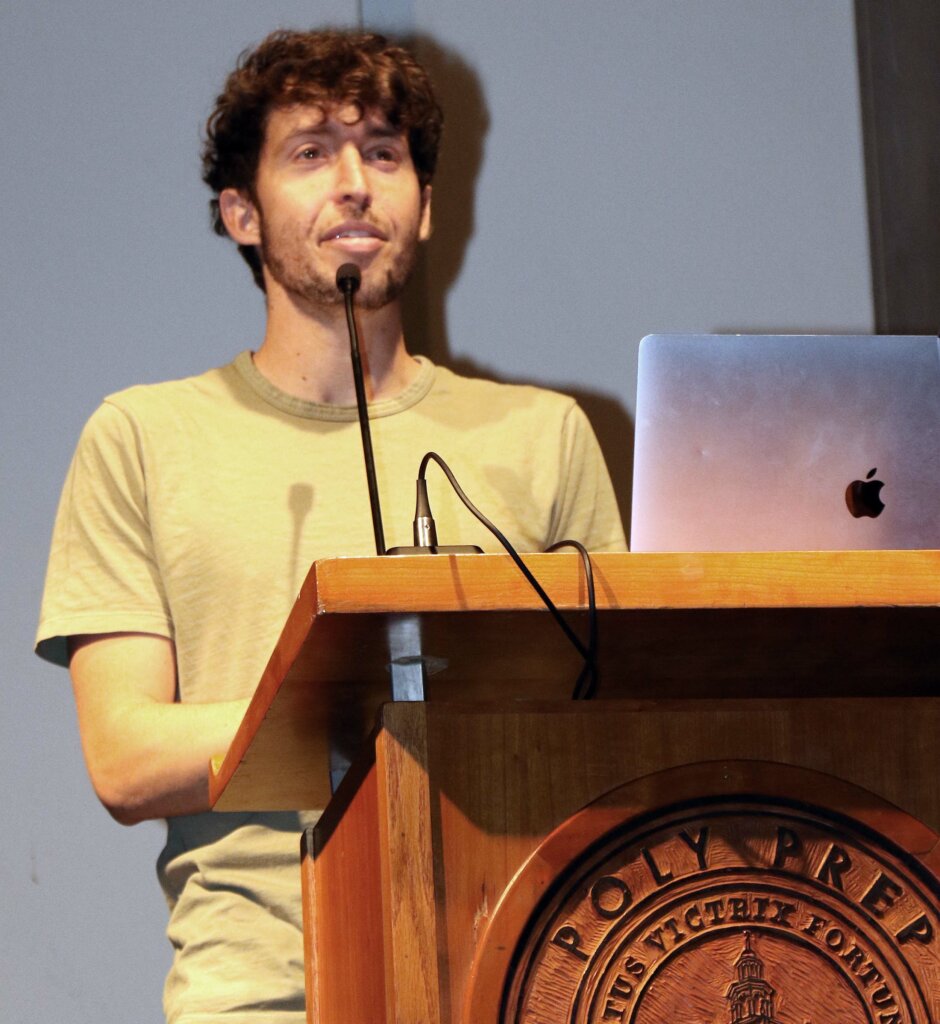
Social Media: Addictive by Design
The Upper School and Middle School presentations and a Zoom meeting with Poly parents that day were very timely in that on October 24, New York State Attorney General Letitia James along with 32 other attorneys general sued social media giant Meta “for knowingly using features on Instagram and Facebook to hook children to its platforms, even as the company said its social media sites were safe for young people.”
A smartphone is a “a magical device in our pockets,” said Stossel. “How can something so awesome make such a mess.” He noted apps such as TikTok and SnapChat are “meant to dominate your attention.” He called Fortnite “literally a slot machine for kids.”
“Am I using technology or is technology using me?”
“Think about what on social media are you doing because you want to and what are you doing mindlessly,” Stossel told students. He called the developing of apps the “gamification of our social lives” and advised, “Turn off notifications and leave on only those that are from ‘human beings.’”
In a slide he presented, Stossel asked the students to think about when they felt “most alive, free, and connected to the people you love.” Then he asked students to raise their hands if that was when they were on social media. Only one student raised a hand.
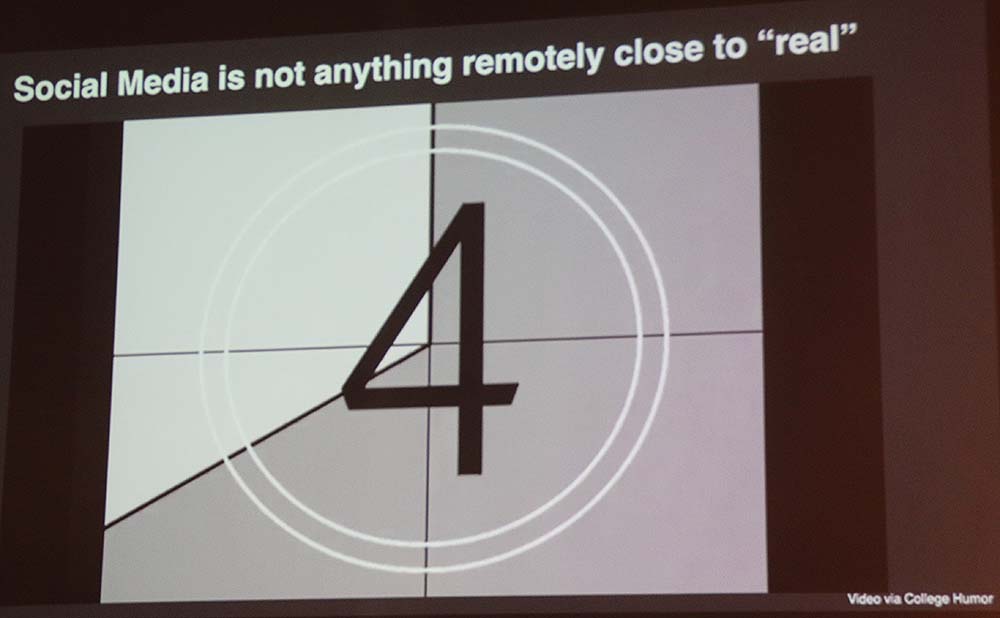
He asked students to consider, “Am I using technology or is technology using me? How does it make you feel afterward?”
Social media is not anything remotely close to real life, Stossel said. About people editing their photos or using filters, he said, “What is the message we are telling ourselves?” He continued, “It’s never been easier to run from ourselves… We’re not learning to be with ourselves. We are looking at ourselves through the lens of social media.”
Mental Health Impact: So What Can We Do?
Stossel noted an increase in mental health challenges such as depression and anxiety since social media became popular around 2012.
Middle School counselor Tynesha Wright-Lindo said, “While Max acknowledged the benefits of social media, he also boldly shared the crafty ways media strategists entice people to stay online longer without considering the real life effects. Research shows that prolonged use of apps and social media platforms has been connected to a decline in mental wellness. It’s important to understand the risks involved with something so prevalent in our daily lives in order to maximize its potential.”
So what can we do? Stossel advised:
- Turn off notifications that are not from people.
- Unfollow accounts that make you feel bad.
- Delete toxic apps. How does the app make you feel?
He also suggested using OneSec, which he uses to delay any distracting apps and websites that are designed to draw a user in. Stossel advises replacement behaviors such as personal communication, exercise, and activities. On their site, OneSec states its goal is to “… break those habits. By making you wait longer for social media to open, your brain loses interest in those (destructive) short-term dopamine hits.”
“We can all start by just asking ourselves ‘How do I feel when I’m using this app? How do I feel afterward?’”
Afterward, Director of Student Support Juliet Moretti said she hoped the students took away from the presentation “ the importance of intention and impact when they engage with social media.” She added, “I thought Max did a great job of explaining how the businesses behind social media don’t always align with the consumers’ best interests, but that with thought and consideration, we can all protect ourselves from some of the more damaging aspects, while still enjoying some of the benefits. We can all start by just asking ourselves ‘How do I feel when I’m using this app? How do I feel afterward?’”
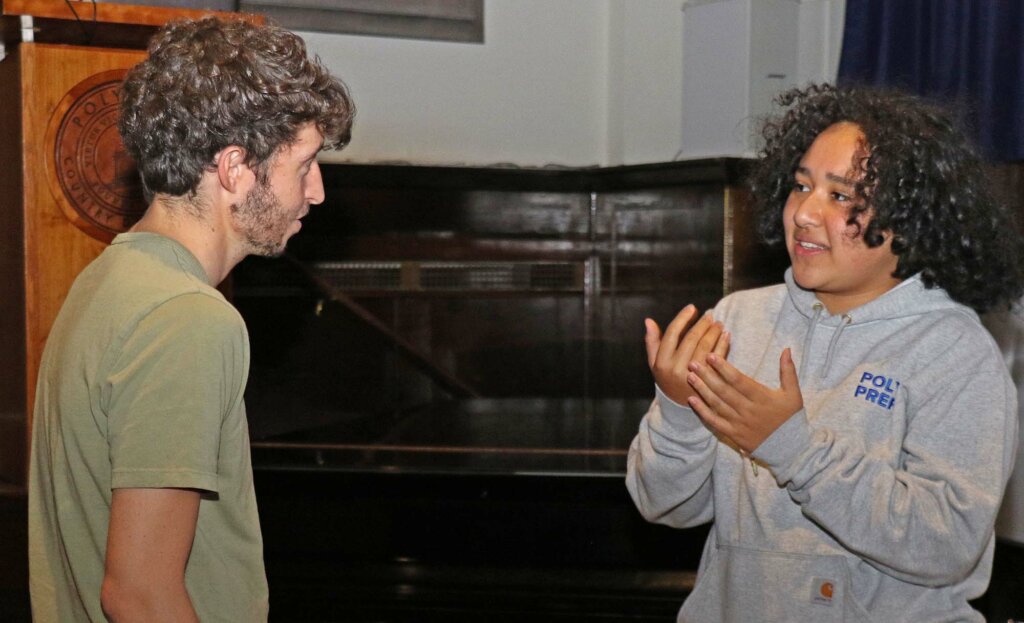
Wright-Lindo added, “I hope the students took away how helpful it can be to regularly reflect on their relationship with social media. I hope that rather than just comply with what a social media platform asks one to do, students can consider their intent for being on that platform and what they’re hoping to receive. I hope students pursue joy and connection from various sources that could include social media and also things like in-person interactions, nature, and adventures.”

